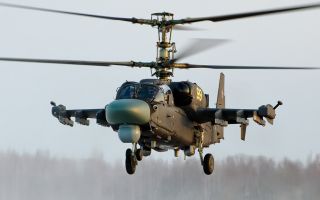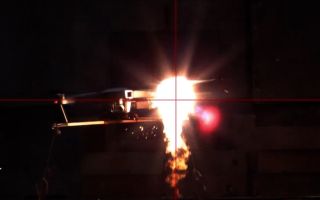
Do the Armed Forces need cyber warriors? Yes, but they must be real warriors too

At the Labour Party conference this week, Defence Secretary John Healey put out a call for cyber military recruits.
He announced a new direct route to recruit such people because, he said "if you’re a top gamer or a coder – your country needs you!".
Interestingly, he then went on to reassure the audience about maintaining the "highest standards", making specific reference to Armed Forces personnel being "better fit to fight".
No doubt this was an attempt to reassure the doubters that recruiting cyber experts into the Armed Forces was not an exercise in creating a corps of slovenly, hoodie-wearing basement-dwellers who were disconnected from the rest of the Armed Forces and unable to participate in martial activities, except through their parents' broadband connection.
Such is the stereotype.
But, of course, the Secretary of State is right.
We do need more people in the Armed Forces with the technical skills and aptitude to protect our own networks, capabilities and data from enemy attack - something which is happening all the time - and to prosecute such attacks against the UK's adversaries.
This matters because we are increasingly reliant on technology and, in particular, data and networked information systems for capability advantage over our adversaries.
The contest in cyberspace, and the battle for the electro-magnetic environment, is just as important - and perhaps even more so - as our ability to exert sea control, win control of the air or to take and hold territory on land.
Quite simply, this is because advantage in the Cyber Domain and Electromagnetic Environment determines whether it is you or the enemy that is fighting deaf and blind.
This is one of the key lessons of the war in Ukraine and I firmly expect it to be a major theme emerging from the Strategic Defence Review.
If we are to get more out of the money we spend on defence in the UK, especially improving the lethality and survivability of our land, sea and air units, then we must make them more able to access and exploit reliable, timely and assured data.
To do this we need the people who understand the technology and can harness it, so it is important to focus on their recruitment.
I have written previously for BFBS Forces News about the need to improve "the offer" so the Armed Forces can recruit and retain the right people – this is even more critical when it comes to sought-after and scarce skills like coding and cyber-competence.
And what of the gamers?
There is likely to be a significant cross-over between those with coding and cyber skills and those who are expert gamers, but the Venn diagram is not a circle.
Gamers bring the sorts of fine motor control skills and the ability to interface with technology that is needed to operate some of our most modern equipment.
The excellent BFBS Sitrep podcast recently covered an international military Esports tournament and highlighted many of these points extremely well.
Xbox-style controllers are increasingly similar to the controllers used to operate sophisticated military equipment.
Especially where control of this equipment is remote, for example uncrewed and autonomous systems, the skills of the gamer are directly applicable.
We need people in our Armed Forces who are as comfortable and competent at a console, or using a handheld controller, as they are with firing a rifle.
But it is not either/or.
Another key lesson from Ukraine is that those operating such technologies, for example the first-person drones used so effectively against armour, vehicles and other targets, is that the operators need to be close to the tactical fight.
To get the maximum range from such devices, the launch and control needs to be right up at the frontline.
Put frontline skills at the forefront
The soldiering skills, fieldcraft and physical robustness to operate and survive in such circumstances are as essential as the technical competence.
The same is true at sea.
Robot boats, submarines and aircraft will increasingly aid our sailors to enhance the range and effectiveness of our naval units.
But the traditional skills of seamanship remain as relevant as ever.
Launching and recovering such robots, especially in heaving seas and at night, remains the work of the experienced and competent sailor.
Robotics researcher Hans Moravec observed that tasks that are easy for humans to perform, such as practical sensory motor skills, are difficult for machines to replicate.
Tasks that are difficult for humans, in contrast, such as performing mathematical calculations or large-scale data analysis, are relatively easy for machines to accomplish.
Computers are good at spreadsheets. Printers are a nightmare!
Humans and machines have different roles to play
I was part of the ship's company that first took HMS Queen Elizabeth to sea.
In the galley we had lots of automation and an exceptionally well-designed workflow.
This meant that relatively few chefs could prepare high quality food for 1,500 people up to four times a day. And they did a brilliant job.
But it turns out that the baguette-making machine and the automated potato-peeler couldn't scrub down the galley at the end of the service, nor act as duty first-aider!
This meant our chefs were being fragged, and we needed to augment their numbers beyond the original assumptions for crewing.
Fighting ability trumps technical prowess
We must never forget the entirety of the roles that our people perform and the value that they add when making great pronouncements and assumptions about technology's role in our plans.
To a great extent therefore, cyber, coding and gaming skills (and the people who bring them), will become increasingly important to the effectiveness of our Armed Forces.
These skills and people are in short supply and high demand, and so it is right that there is a specific focus on recruiting and I hope retaining them in the Armed Forces.
But we would be fools to think that these skills were a replacement for the traditional competencies of fighting at sea, on the land or in the air.
Technology can do much to augment our capabilities, and we must harness it for our needs in both war and peace, but it is not a panacea.
Sailors, marines, soldiers and aviators who have mastery of their craft will be needed for many years to come!









